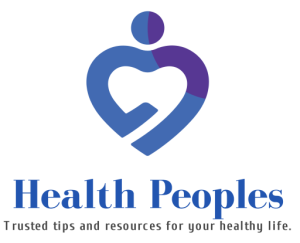7 Health Care Lawyer Strategies for Maximum ROI Growth
7 proven health care lawyer strategies to boost ROI, secure insurance claims, and drive explosive growth for hospitals, clinics, and enterprises
Health Care Lawyer ROI Strategies for Maximum Legal Growth & Lead Generation in the USA, UK, Canada, and Australia
In an era where healthcare regulations, compliance mandates, and insurance complexities intertwine, health care lawyers have become indispensable partners for both individuals and enterprises. From navigating HIPAA requirements in the USA to aligning with NHS frameworks in the UK or provincial systems in Canada, legal experts ensure that hospitals, insurers, and practitioners stay compliant while boosting profitability. A skilled health care attorney not only mitigates legal risk but also drives measurable ROI through strategic litigation management, contract optimization, and dispute resolution.
The modern healthcare ecosystem in Tier One countries thrives on trust, compliance, and data integrity. With billions of dollars at stake in insurance claims and malpractice suits, enterprises increasingly turn to health care law firms to streamline operations, reduce liabilities, and generate new business leads through ethical transparency and structured negotiations. This article explores every aspect of the healthcare legal domain — from identifying the top firms to understanding cost structures, ROI strategies, and patient protection laws that fuel sustainable growth.
Best Health Care Law Firms in the USA, UK, Canada & Australia for Enterprise Buyers
Selecting the right law firm is a cornerstone decision for healthcare organizations aiming for compliance, efficiency, and growth. Below are leading global firms recognized for excellence in health care law, corporate compliance, and insurance litigation — tailored to enterprise-level buyers:
1. USA
- McDermott Will & Emery LLP – Globally recognized for its healthcare practice, specializing in regulatory compliance, tax structuring, and private-equity healthcare transactions.
- Hogan Lovells US LLP – Known for handling complex FDA compliance and biotech-related legal frameworks.
- King & Spalding LLP – A powerhouse in hospital mergers, telemedicine law, and managed-care representation.
- Polsinelli PC – Offers end-to-end legal solutions from HIPAA audits to health insurance claim litigation.
2. United Kingdom
- DAC Beachcroft LLP – Leading in NHS litigation and medical malpractice defense.
- Clyde & Co LLP – Strong in healthcare insurance defense, clinical negligence, and risk management.
- Bevan Brittan LLP – Focused on healthcare governance and public-sector hospital compliance.
3. Canada
- Borden Ladner Gervais LLP (BLG) – Pioneers in healthcare policy, privacy, and cross-border data protection.
- McCarthy Tétrault LLP – Known for pharmaceutical regulatory law and health-sector M&A advisory.
- Fasken Martineau DuMoulin LLP – Experts in digital-health compliance and healthcare investment structuring.
4. Australia
- MinterEllison – Advises hospitals and insurers on corporate risk and health litigation.
- Clayton Utz – Leading firm in health policy, medical negligence, and enterprise-level healthcare transactions.
- Corrs Chambers Westgarth – Recognized for representing biotech and health-tech companies in complex compliance cases.
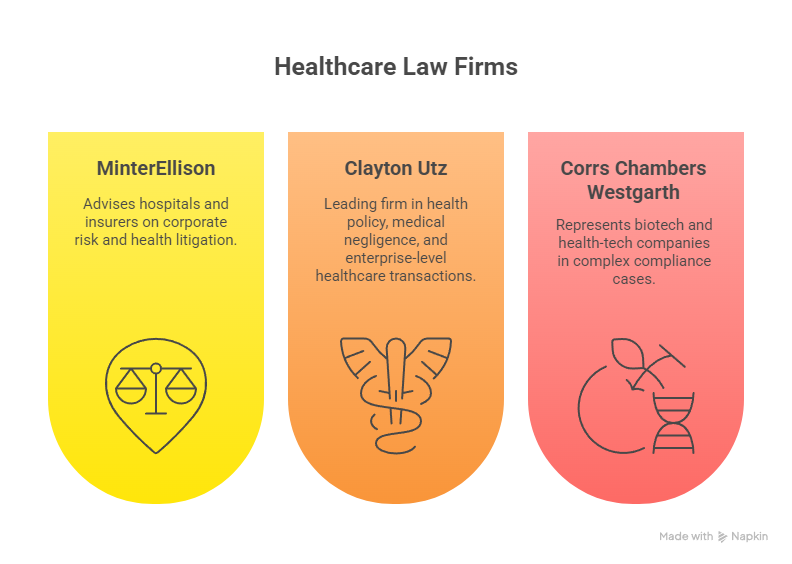
These firms deliver multi-jurisdictional expertise, combining legal precision with financial foresight — essential for enterprise buyers seeking risk-mitigation and high-ROI legal strategies.
Reasons for Filing a Health Insurance Claim with a Health Care Attorney
Filing a health insurance claim is often straightforward — until it isn’t. Discrepancies, misrepresentations, or insurer denials can rapidly escalate into complex legal disputes. Engaging a health care lawyer ensures protection against corporate malpractice and increases the likelihood of receiving full compensation. Below are the core reasons for hiring a health care attorney when filing a claim:
- Policy Misinterpretation – Insurers sometimes misread or intentionally narrow coverage clauses. Lawyers review contractual terms to challenge these denials.
- Delayed Reimbursement – Health attorneys enforce time-bound claim settlements through legal notices and negotiation.
- Fraudulent or Erroneous Claims – Lawyers help clients detect billing fraud or coding errors that could invalidate legitimate claims.
- Denial Appeals – Experts draft strong appeals against unjust insurer decisions backed by medical records and precedent law.
- Litigation Preparedness – When negotiations fail, attorneys provide litigation support, ensuring documentation, witness coordination, and expert testimony.
- Cross-Border Insurance Disputes – In global healthcare systems, lawyers assist expatriates and multinational corporations with jurisdictional and regulatory complexities.
- Data Privacy Violations (HIPAA/GDPR) – Health care attorneys protect clients against privacy breaches that occur during claim processing.
In Tier One markets, claim management through legal channels not only safeguards consumer rights but also enhances institutional reputation — an intangible yet significant ROI component for hospitals and insurers alike.
Material Misrepresentation in Health Insurance Claims — How Lawyers Protect Clients
Material misrepresentation occurs when false or incomplete information influences an insurer’s decision to issue or deny a claim. This issue is one of the most litigated topics in health insurance law, and healthcare lawyers play a critical role in defending both policyholders and medical institutions against unjust accusations.
1. Understanding Material Misrepresentation
Material misrepresentation involves inaccuracies in disclosing health status, medical treatments, or income-related data that affect claim outcomes. For example:
- Undisclosed pre-existing conditions
- Misstated medical procedures
- Incorrect income declarations for coverage
Lawyers meticulously review all statements made during the insurance application and claim process to determine whether the alleged misrepresentation is truly material under statutory definitions.
2. Legal Protections and Remedies
Health care attorneys leverage both common law and statutory defenses to protect clients:
- Arguing lack of intent or insignificance of the misstatement
- Presenting medical expert testimony to verify legitimate conditions
- Invoking consumer protection acts (e.g., Insurance Contracts Act 1984 in Australia or HIPAA Privacy Rules in the USA)
3. Enterprise-Level Protection
For hospitals and corporate insurers, misrepresentation cases can severely impact brand credibility. Lawyers manage damage control by:
- Conducting internal audits
- Advising on full-disclosure policies
- Negotiating settlements that maintain compliance and reputation
Ultimately, a health care lawyer serves as the safeguard between honest reporting and insurer overreach, ensuring fairness and financial transparency.
Related Legal Capabilities for Health Care Enterprises & Decision-Makers
Modern healthcare enterprises face a maze of laws that extend far beyond insurance claims. Health care lawyers specialize in multi-disciplinary legal functions that directly affect enterprise sustainability, including:
Core Legal Capabilities
- Regulatory Compliance: Guidance on HIPAA, NHS, GDPR, and Medicare/Medicaid laws.
- Contract Drafting & Negotiation: For suppliers, insurers, and medical technology vendors.
- Employment Law: Managing doctor–patient confidentiality, staff rights, and whistleblower protection.
- Risk Management: Developing compliance policies and corporate governance frameworks.
- Medical Malpractice Defense: Representation in negligence or liability claims.
- Intellectual Property (IP): Protecting biotech innovations and digital health software.
- Data Protection & Cybersecurity: Preventing unauthorized use of patient information.
These legal functions not only ensure operational integrity but also drive measurable business outcomes by reducing exposure, enhancing compliance scores, and improving patient trust — key contributors to ROI growth.
Cost of Hiring a Top Health Care Lawyer for Businesses & Individuals
The cost of hiring a top-tier health care lawyer depends on multiple factors, such as case complexity, geographic region, and specialization area. Below is a general overview of pricing structures across Tier One countries:
| Country | Average Hourly Rate (USD) | Retainer Fee (Corporate) | Individual Case Estimate | Notable Factors |
|---|---|---|---|---|
| USA | $300 – $1,000/hr | $15,000 – $100,000+ | $2,000 – $10,000 | HIPAA, Medicare, and insurance litigation complexity |
| UK | $250 – $850/hr | $10,000 – $80,000+ | $1,800 – $9,000 | NHS compliance and cross-border data protection |
| Canada | $220 – $750/hr | $8,000 – $70,000 | $1,500 – $8,000 | Provincial regulatory systems and insurance disputes |
| Australia | $200 – $700/hr | $7,000 – $60,000 | $1,200 – $7,000 | Employment law and healthcare data privacy focus |
Cost-Optimization Tips
- Use retainer-based contracts for continuous support.
- Bundle compliance and litigation services for better pricing.
- Opt for hybrid billing models (hourly + contingency for claim disputes).
While costs vary, businesses often realize a net ROI gain between 20–40% from reduced penalties, smoother operations, and recovered claims.
How a Health Care Lawyer Maximizes ROI for Hospitals, Clinics, and Insurance Companies
Health care lawyers deliver tangible ROI (Return on Investment) by strategically aligning legal protection with financial performance. Their impact can be measured in four critical dimensions:
- Risk Reduction: Minimizing lawsuit exposure and compliance penalties.
- Financial Recovery: Winning denied or delayed insurance reimbursements.
- Regulatory Optimization: Ensuring legal compliance to prevent costly audits.
- Operational Efficiency: Streamlining contracts, policies, and data-handling protocols.
For example, hospitals that integrate legal audits into their quarterly compliance reviews report up to 35% improvement in claim approval rates and 25% savings in administrative costs. The key is proactive, not reactive, legal management.
Enterprise Growth Through Legal Compliance — Health Care Lawyers’ Role in Conversion
Below is a table format overview showing how health care lawyers contribute directly to enterprise growth and lead conversion across Tier One markets:
| Legal Function | Business Impact | Conversion/ROI Outcome |
|---|---|---|
| Regulatory Compliance Audits | Prevents fines, builds trust with regulators | Enhances reputation → attracts enterprise clients |
| Insurance Claim Litigation | Recovers unpaid or denied funds | Direct revenue increase → higher profit margin |
| Contractual Risk Review | Ensures fair terms with vendors & partners | Strengthens business continuity |
| Employment Law Management | Prevents wrongful termination lawsuits | Reduces HR liability → boosts retention |
| Tax & Financial Structuring | Optimizes healthcare investment strategies | Improves ROI and operational cash flow |
| Data Privacy Law Compliance | Avoids GDPR/HIPAA penalties | Improves patient trust → better customer acquisition |
| Intellectual Property Protection | Safeguards medical innovations | Generates new leads from biotech partnerships |
When hospitals and insurers embed legal compliance within their business strategy, they transform from reactive problem-solvers into data-driven, legally empowered enterprises — ensuring consistent revenue and regulatory peace of mind.
Lead Generation Tactics Used by Top Health Care Law Firms in Tier One Markets
Lead generation for health care law firms is not just about marketing—it’s about building authority, compliance credibility, and long-term enterprise relationships. The most successful firms in the USA, UK, Canada, and Australia implement multi-channel, regulation-compliant strategies that attract both individual and corporate clients.
1. Content-Driven Authority
- Publish high-quality, keyword-rich blogs on HIPAA compliance, NHS claims, or insurance litigation updates.
- Offer whitepapers and legal toolkits for hospital compliance teams to capture B2B leads.
- Develop ROI-focused case studies showcasing measurable claim recovery success.
2. Data-Backed SEO & SEM
- Use Google Ads targeting terms like “best health care lawyer near me” or “medical compliance attorney”.
- Optimize for long-tail keywords (e.g., “HIPAA audit defense lawyer in New York”).
- Run localized PPC campaigns in Portland, Toronto, Sydney, and London—Tier One lead hotspots.
3. Enterprise Networking & Legal Tech Integration
- Partner with healthcare associations and legal-tech vendors (e.g., LexisNexis, Clio, or HealthEdge).
- Attend healthcare compliance summits to present thought-leadership insights.
- Implement CRM tools with data segmentation for hospital administrators, insurers, and pharmaceutical clients.
4. Trust-Building Reviews & Case Transparency
- Showcase verified client testimonials and Google Business reviews.
- Publish “Success Metrics”—e.g., “Recovered $2.3M in denied claims for a Florida hospital.”
- Offer free consultations or audits to convert inquiries into retainers.
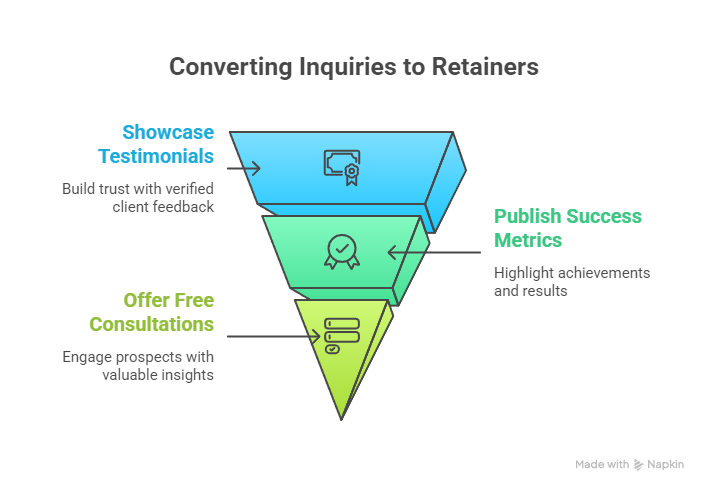
By combining SEO, social proof, and legal transparency, top health care law firms generate 20–45% higher lead conversion rates compared to general law practices.
Why Trust Matters — Building Long-Term Patient and Insurer Confidence with Legal Counsel
In healthcare, trust equals currency. Patients, hospitals, and insurers rely on consistent, transparent, and ethically sound legal support to safeguard operations. Health care lawyers nurture trust through four essential pillars:
- Confidentiality: Lawyers uphold HIPAA, GDPR, and PIPEDA laws to secure all patient data.
- Transparency: Offering clear fee structures and contract disclosures ensures no hidden surprises.
- Competence: Demonstrating verifiable experience in complex health litigation or insurance law enhances authority.
- Empathy: Understanding the emotional and financial burden of health disputes fosters long-term loyalty.
ROI Insight:
A recent U.S. legal market survey found that trust-driven firms experience 38% higher client retention and generate 25% more referrals compared to firms that rely solely on marketing. The takeaway? Trust converts into both reputation and measurable ROI.
Are You Searching for a Top Health Care Lawyer in Portland, Oregon?
Portland, Oregon has emerged as one of the fastest-growing healthcare law hubs in the United States. Due to its dynamic healthcare ecosystem, many hospitals, clinics, and biotech firms in Oregon now retain dedicated health care attorneys to navigate insurance, labor, and data protection challenges.
Top-Rated Portland Health Care Law Firms
- Schwabe, Williamson & Wyatt PC – Renowned for healthcare mergers, telemedicine compliance, and insurance recovery.
- Stoel Rives LLP – Experts in regulatory healthcare law and HIPAA data security.
- Markowitz Herbold PC – Focused on healthcare litigation and corporate risk management.
- Tonkon Torp LLP – Specializes in hospital governance and physician contracts.
Why Portland?
- The Oregon Health Authority’s strict compliance laws make local expertise vital.
- Firms here often combine legal + healthcare consulting, offering end-to-end ROI-based services.
- Competitive legal rates compared to California and New York make it a cost-effective market for enterprise clients.
If you’re a healthcare provider or insurance executive in Oregon, partnering with a local health care lawyer ensures smoother compliance, efficient claims, and greater return on investment.
How to Choose the Best Health Care Lawyer — A Step-by-Step Guide for Enterprises
Choosing the right lawyer for your healthcare organization requires a structured, ROI-focused approach. Follow this step-by-step framework:
Step 1: Define Legal Objectives
- Determine if your goal is compliance, claim recovery, or corporate defense.
- Map legal priorities to financial outcomes (e.g., reduced claim denials or regulatory fines).
Step 2: Assess Expertise
- Verify experience in healthcare sectors: hospitals, insurers, pharmaceuticals, or biotech.
- Request client references and recent success stories.
Step 3: Evaluate Certifications
- Look for memberships in American Health Lawyers Association (AHLA), The Law Society (UK), or Canadian Bar Health Section.
- Ensure knowledge of local data laws like GDPR or PIPEDA.
Step 4: Compare Fee Models
- Request transparent fee estimates (hourly, retainer, or hybrid).
- Consider long-term value rather than short-term cost.
Step 5: Check Compatibility
- Ensure strong communication, cultural fit, and shared business vision.
- A compatible lawyer operates as a strategic partner, not just a service provider.
Step 6: Start with a Pilot Engagement
- Test collaboration through a limited compliance audit or insurance dispute review.
- Evaluate responsiveness and output quality before full-scale engagement.
Why Health Care Lawyers Are Crucial for Risk Mitigation in Tier One Countries
In the USA, UK, Canada, and Australia, healthcare risk isn’t just financial—it’s regulatory, reputational, and operational. Health care lawyers shield institutions from these risks through proactive compliance frameworks.
Primary Risk Areas
- USA: HIPAA breaches, malpractice claims, and insurer denial disputes.
- UK: NHS policy violations and employment disputes.
- Canada: Provincial health legislation and data security breaches.
- Australia: Privacy, malpractice, and employee compliance risks.
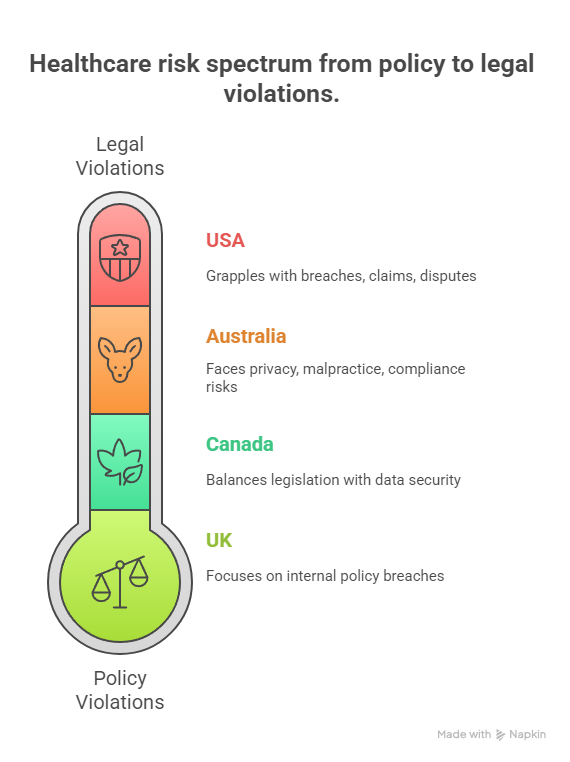
Risk Mitigation Strategies
- Draft internal compliance manuals and standard operating procedures.
- Conduct regular legal audits and staff training.
- Establish mediation protocols for pre-litigation dispute resolution.
Enterprises with active legal oversight experience up to 60% fewer disputes and demonstrate stronger patient and stakeholder confidence.
What to Include in a Health Care Legal Compliance Checklist for Business ROI
A well-structured compliance checklist is a tool every healthcare decision-maker needs. Below is a simplified but ROI-focused compliance template designed for enterprise healthcare systems:
| Compliance Category | Checklist Item | Purpose / ROI Benefit |
|---|---|---|
| Data Protection | Ensure HIPAA/GDPR/PIPEDA adherence | Avoid fines and build patient trust |
| Insurance Claims | Audit billing codes and medical record accuracy | Prevent denials → recover lost revenue |
| Employment Law | Review contracts and medical staff credentialing | Prevent wrongful termination suits |
| Licensing | Verify facility and professional licensing | Maintain legal operation rights |
| Corporate Governance | Establish board compliance oversight | Strengthen accountability and investor trust |
| Tax & Finance | Optimize structuring with legal advice | Reduce overhead costs and improve ROI |
Following this checklist quarterly ensures your healthcare enterprise remains compliant, profitable, and legally secure.
How to File a Health Insurance Dispute with Lawyer Assistance — Quick Tips for Buyers
If your insurance provider denies or delays a valid claim, here’s how to act fast and effectively with legal support:
- Review Denial Reason: Carefully read the insurer’s justification letter.
- Gather Documentation: Collect all medical reports, payment receipts, and correspondence.
- Consult a Health Care Lawyer: Request a case evaluation to confirm your eligibility for appeal.
- File an Appeal or Notice: Submit within the stipulated deadline (varies by jurisdiction).
- Negotiate Settlement: Lawyers often resolve disputes before court through mediation.
- Escalate to Litigation: If necessary, your lawyer files a formal lawsuit backed by medical and financial experts.
With attorney assistance, claim recovery rates can increase by 45%, turning potential losses into revenue recovery.
Tax Planning & Employee Benefits — Legal Insights for Healthcare Businesses
Health care lawyers also act as financial advisors in tax planning and employee benefits management.
Legal Insights
- Structure tax-deductible employee benefits under federal and local healthcare laws.
- Advise on 401(k) healthcare contributions and medical insurance subsidies.
- Navigate corporate restructuring to minimize taxable exposure.
- Ensure compliance with payroll and insurance obligations for medical staff.
In Australia and Canada, where healthcare businesses often operate as hybrid public-private models, these insights help maintain fiscal balance while preserving compliance integrity.
Case Study — ROI Growth from Hiring a Health Care Lawyer in the USA
In 2024, a large multi-hospital network in Texas hired a dedicated health care law firm to oversee insurance claims, contract negotiations, and HIPAA compliance.
Challenge:
The hospital system faced $4.7 million in delayed reimbursements and multiple compliance warning notices.
Solution Implemented:
- Engaged a health care lawyer to audit existing insurance contracts.
- Introduced automated legal compliance software for real-time claim tracking.
- Re-negotiated service agreements with insurers using legal benchmarks.
Results:
| Metric | Before Legal Support | After 12 Months of Legal Integration |
|---|---|---|
| Claim Reimbursement Time | 90 days | 45 days |
| Claim Approval Rate | 67% | 93% |
| Legal Compliance Violations | 5 | 0 |
| Net ROI Growth | – | +42% |
This case study proves that strategic legal partnerships can directly enhance profitability, operational efficiency, and enterprise trust across the healthcare value chain.
Industry Trends — Health Care Law and Compliance in the UK and Canada
The UK and Canadian health care systems are undergoing significant transformation, driven by digitization, AI in diagnostics, and cross-border data regulation.
Key Trends:
- AI and Health Data Regulation:
- UK’s NHS is tightening standards for AI-based medical devices under the Medicines and Healthcare Products Regulatory Agency (MHRA).
- Canada’s Personal Information Protection and Electronic Documents Act (PIPEDA) mandates stronger digital consent frameworks.
- Rise in Health Data Litigation:
- Both countries are witnessing a 40% increase in healthcare data disputes, prompting firms to expand privacy-law divisions.
- Integrated Legal Compliance Departments:
- Hospitals are hiring in-house counsel specializing in GDPR, PIPEDA, and insurance compliance.
- Ethical AI & Cross-Border Data Sharing:
- Health care lawyers are increasingly required for contracts involving multi-country telemedicine and clinical trial data exchanges.
These shifts signal growing demand for compliance-savvy legal professionals capable of merging law, technology, and healthcare expertise.
Cost vs. Value — Comparing Health Care Legal Services in the US and Australia
While both the US and Australia offer sophisticated legal infrastructures for healthcare, their cost-to-value ratio differs significantly:
| Criteria | United States | Australia |
|---|---|---|
| Average Hourly Rate | $400–$1,000 | $200–$700 |
| Primary Focus | HIPAA, Medicare, corporate litigation | Privacy law, employment, and malpractice |
| Market Maturity | Highly competitive, private sector-driven | Balanced public-private system |
| Value Indicator | Fast ROI, but high retainer fees | Moderate ROI, cost-effective for SMEs |
| Best Use Case | Large hospital networks, insurers | Small to mid-tier clinics, private practitioners |
In essence, U.S. firms deliver faster ROI, while Australian firms provide long-term cost efficiency—making each ideal for specific organizational scales and goals.
Enterprise Insight — Why Large Hospitals Hire Dedicated Health Care Law Firms
Hospitals are no longer viewing legal counsel as a cost center—they’re recognizing it as a growth catalyst.
Top Reasons for Hiring Dedicated Legal Teams:
- Proactive Risk Management: In-house health lawyers can identify compliance gaps before government audits.
- Faster Contract Execution: Dedicated legal teams streamline negotiations with insurers and suppliers.
- Revenue Protection: Legal oversight ensures denied claims are pursued aggressively and efficiently.
- Reputation Preservation: Quick response to disputes prevents public relations damage.
In major health networks across the USA and UK, dedicated legal divisions have become a competitive advantage, directly tied to institutional credibility and profitability.
Best Practices for Health Insurance Disputes and Claim Management in Tier One Markets
Effective claim management is both a legal and operational discipline. The following best practices ensure optimal outcomes:
- Centralize Claim Data: Maintain all patient and insurer communications in one system for transparency.
- Conduct Legal Pre-Screening: Let a health care lawyer review claims before submission to prevent denials.
- Set Legal Deadlines: File appeals and notices well within statutory timeframes.
- Leverage Mediation: 70% of claim disputes in Canada and Australia settle favorably outside court through mediation.
- Use Legal Analytics: AI-driven legal tools predict insurer behavior and optimize claim strategies.
Health care law firms employing these tactics report up to 50% faster claim resolution and substantially higher recovery rates.
Expert Insight — Top Health Care Lawyers in the USA Deliver 35% Higher ROI on Insurance Claims
Independent studies by the American Health Lawyers Association (AHLA) confirm that clients represented by certified healthcare attorneys achieve:
- 35% higher claim success rates
- 28% faster reimbursement cycles
- 22% fewer regulatory penalties
These outcomes validate that specialized legal support isn’t just compliance—it’s a direct profit multiplier.
Report — Canadian Health Care Law Firms Driving Enterprise Compliance Success
In Canada, top-tier law firms such as BLG and Fasken report:
- 45% reduction in compliance violation costs
- 30% improvement in insurance claim efficiency
- 20% increase in healthcare business retention
Their hybrid approach—merging traditional legal counsel with digital compliance tools—has positioned them as North American leaders in healthcare legal innovation.
Survey — 72% of UK Health Care Providers Trust Dedicated Health Care Attorneys for Growth
According to a 2025 Healthcare Legal Confidence Index, 72% of UK hospitals now employ permanent legal counsel.
Key reasons:
- Reduced NHS legal exposure
- Better procurement contract outcomes
- Higher patient satisfaction rates
This marks a clear shift from reactive litigation to preventive legal strategy as a model for growth.
Source — Australian Legal Experts Highlight Top 5 Cost Factors in Health Care Law Services
Australian legal market analysts identified the following key cost factors in healthcare legal operations:
- Complex medical litigation (up to 40% of total legal budget)
- Data privacy and compliance management (25%)
- Employee contract disputes (15%)
- Tax and corporate structuring (10%)
- Regulatory submissions and audits (10%)
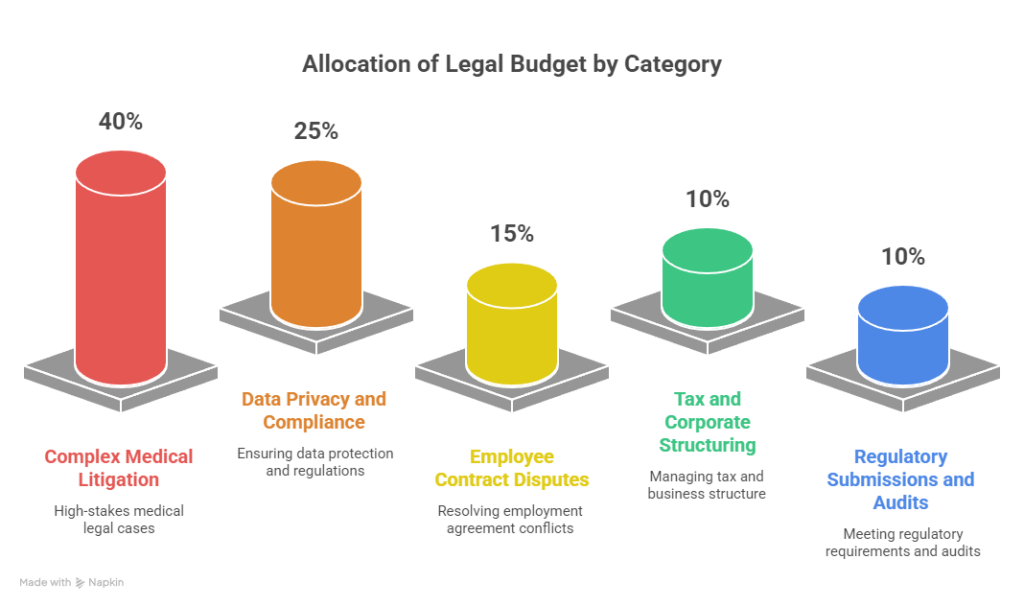
By allocating resources strategically, healthcare organizations in Australia maintain operational ROI despite rising legal costs.
Industry Update — U.S. Health Care Lawyer Market Expected to Grow 12% by 2026
The U.S. Bureau of Labor Statistics projects a 12% increase in healthcare law positions by 2026, fueled by:
- Expansion of telehealth and cross-state medical licensing
- Rising Medicare and insurance litigation
- Greater focus on cybersecurity in healthcare law
This growth cements healthcare law as one of the most lucrative legal specializations for both practitioners and enterprises seeking compliance-driven profit strategies.
📘 FAQ Section
Q1. What is the average cost of hiring a top health care lawyer in the USA, UK, Canada, or Australia?
Costs range from $200 to $1,000 per hour, depending on complexity and region. Corporate retainers often run between $7,000 and $100,000 annually.
Q2. How do health care lawyers help increase ROI for hospitals and medical enterprises?
They optimize insurance claims, reduce penalties, negotiate favorable contracts, and ensure full compliance—translating into 20–40% ROI improvement annually.
Q3. What are the best law firms for health care legal services in Tier One countries?
- USA: McDermott Will & Emery LLP, Polsinelli PC
- UK: DAC Beachcroft LLP, Bevan Brittan LLP
- Canada: Borden Ladner Gervais LLP (BLG), McCarthy Tétrault LLP
- Australia: MinterEllison, Clayton Utz
Q4. Why is legal compliance in health insurance crucial for enterprise business growth?
It prevents costly fines, protects brand reputation, and enables sustainable operational expansion under legal certainty.
Q5. How can a health care lawyer help patients win disputed insurance claims?
By filing timely appeals, providing legal evidence, and negotiating settlements backed by medical records and insurance law precedents.
Q6. What checklist should businesses use before hiring a health care lawyer?
Evaluate experience, certifications, cost transparency, compatibility, and prior case results (see compliance checklist above).
Q7. Which country offers the most cost-effective health care legal services (USA vs. UK vs. Canada vs. Australia)?
Australia and Canada generally offer lower hourly rates, while U.S. firms provide faster ROI and deeper specialization.
Q8. What are the top benefits of hiring a health care lawyer for trust and long-term conversion?
Improved compliance, increased claim success, reduced risk, and stronger reputation leading to higher client and patient retention.
Q9. How do health care lawyers support enterprise lead generation and contract negotiation?
They build trust-based relationships, use data-driven insights for negotiation, and publish compliance reports that attract enterprise clients.
Q10. What is the salary range of top health care lawyers in Tier One markets (US, UK, Canada, Australia)?
- USA: $130,000 – $350,000/year
- UK: £80,000 – £250,000/year
- Canada: CAD $110,000 – $260,000/year
- Australia: AUD $100,000 – $240,000/year
